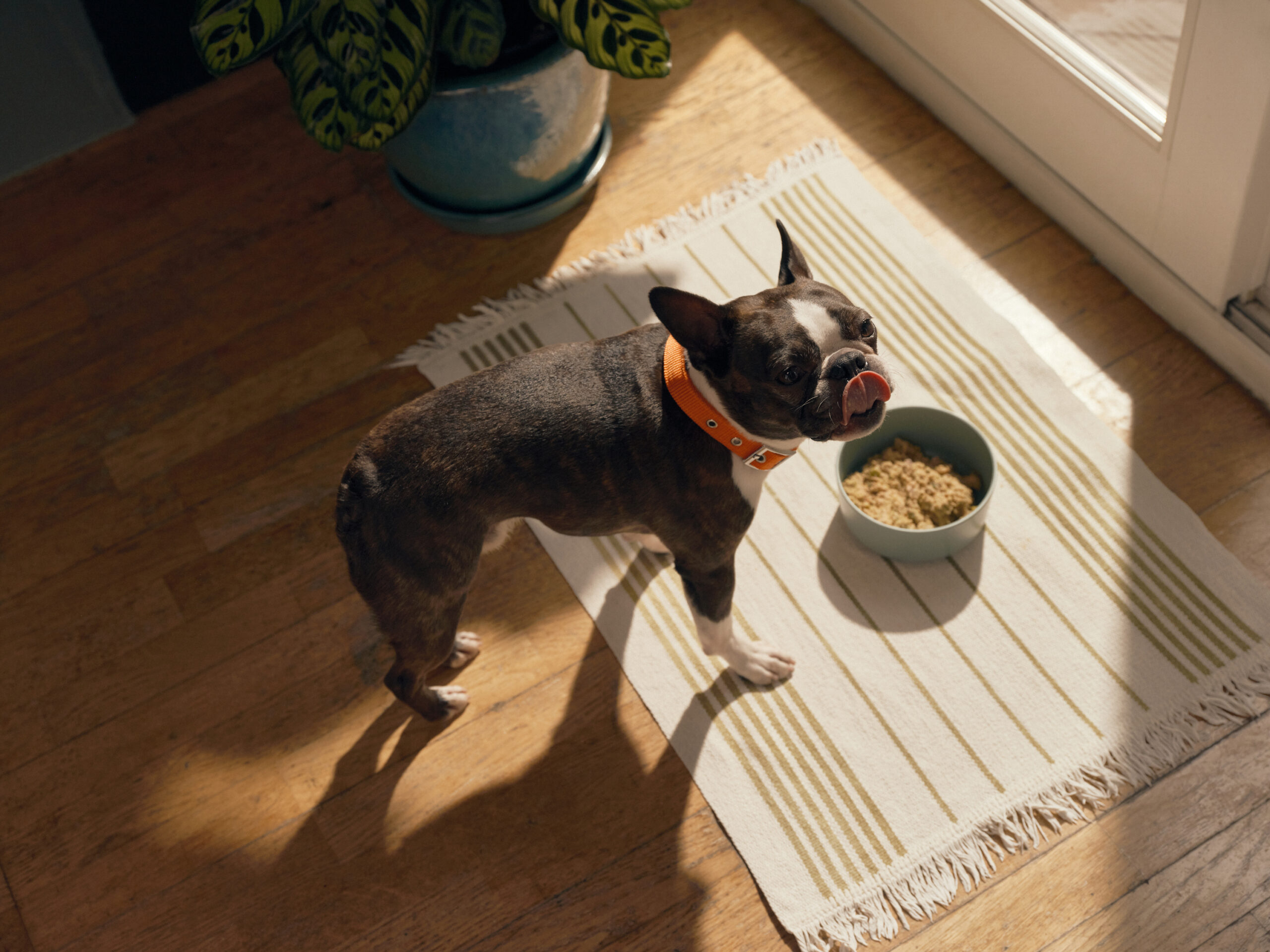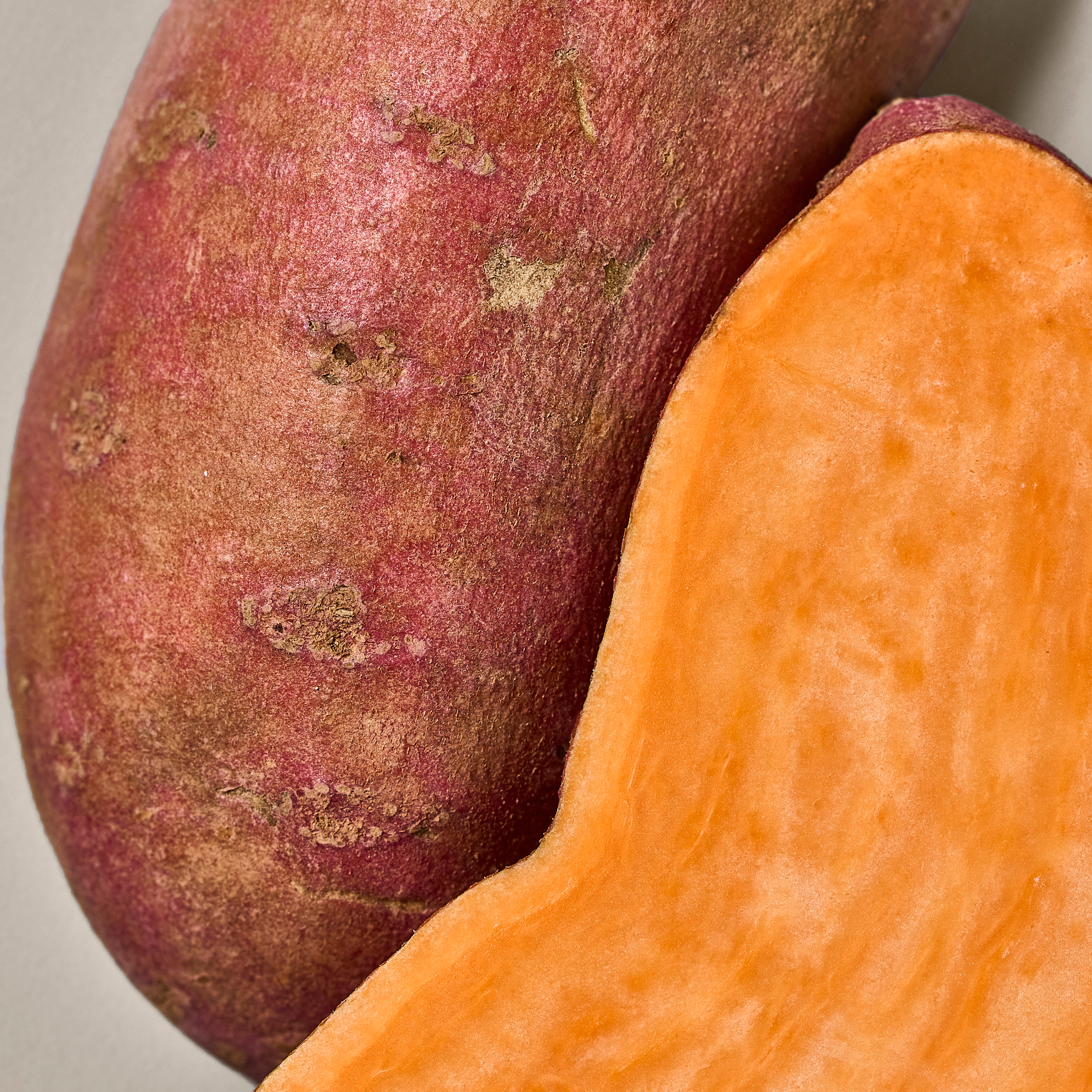Hey Ollie blog readers! We’re offering you an exclusive 60% OFF your starter box! Try now!
Every pet parent wants their dog to thrive, but with so many options, finding the right diet can feel overwhelming. The foundation of your dog’s health starts with what goes into their bowl. According to veterinary nutritionists, a well-balanced diet is the single most important factor in supporting your dog’s growth, energy, and long-term well-being[1][2][3].
The Building Blocks of a Healthy Dog Diet
A complete and balanced diet for dogs isn’t just about filling the bowl. It’s about providing the right mix of nutrients in the right proportions. The Association of American Feed Control Officials (AAFCO) sets the gold standard for pet food nutrition, outlining six essential nutrient groups every dog needs[3]:
- Proteins
- Fats
- Carbohydrates
- Vitamins
- Minerals
- Water
Let’s break down why each of these matters and how they work together to keep your dog healthy.
Why Protein Is the Foundation
Protein is the cornerstone of your dog’s diet. It supplies essential amino acids that build and repair muscles, skin, hair, and even blood[3]. Animal-based proteins like chicken, beef, fish, and eggs are especially valuable because they provide a complete amino acid profile.
Key benefits of protein:
- Supports muscle growth and maintenance
- Aids in tissue repair
- Promotes a healthy immune system
For example, a growing puppy needs more protein than an adult dog to support rapid development and energy needs.
The Role of Fats and Carbohydrates
Fats are more than just a source of calories. They deliver essential fatty acids like omega-3 and omega-6, which help maintain healthy skin and a shiny coat while supporting brain and eye development[3]. Carbohydrates, often misunderstood, provide fiber for digestion and a steady source of energy. Whole grains, sweet potatoes, and legumes are excellent carbohydrate sources.
Fats and carbs help:
- Fuel daily activity
- Absorb fat-soluble vitamins
- Support skin and coat health
“Dietary fat provides energy, aids in fat-soluble vitamin absorption, and supplies essential fatty acids like omega-3 and omega-6, which support skin, coat health, and inflammation control.”[3]
Vitamins and Minerals: The Unsung Heroes
Vitamins and minerals are required in small amounts, but their impact is huge. They support everything from bone growth and blood clotting to nerve function and immune health[3][4]. For instance, magnesium is crucial for bone structure and neuromuscular activity, while potassium helps maintain acid-base balance and muscle function[5].
Essential minerals include:
- Calcium
- Phosphorus
- Magnesium
- Potassium
- Sodium
- Chloride
- Iron
- Copper
- Zinc
- Manganese
- Selenium
- Iodine[3]
A deficiency or excess of any one mineral can disrupt your dog’s health, so balance is key.
Water: The Overlooked Nutrient
Water is often forgotten, but it’s vital for every bodily function. Proper hydration aids digestion, regulates temperature, and keeps organs working efficiently[1][2][3].
Tailoring Nutrition for Special Needs
No two dogs are alike. Age, breed, activity level, and health status all influence dietary needs. Puppies, for example, require more protein and calories to support rapid growth, while senior dogs may benefit from lower-calorie, joint-supporting diets.
Best Food for Puppies and Sensitive Stomachs
Puppies need a diet rich in protein, healthy fats, and specific vitamins and minerals to fuel their development. For pups with sensitive stomachs or allergies, choosing recipes with limited, high-quality ingredients can make a world of difference.
Look for:
- Human-grade, whole-food ingredients
- Recipes formulated with veterinary nutritionists
- Options for grain-free or limited-ingredient diets
Ollie’s fresh dog food is crafted to meet these needs, offering tailored meal plans for puppies and dogs with sensitivities.
Addressing Allergies and Food Sensitivities
Food allergies and sensitivities are increasingly common. Symptoms can include itching, digestive upset, and chronic ear infections. The best dog food for allergies often features novel proteins and avoids common triggers like wheat, corn, and soy.
Tips for managing allergies:
- Choose single-protein recipes
- Avoid artificial additives and fillers
- Consult your veterinarian for guidance
How to Choose the Best Food for Your Dog
Selecting the right food means considering your dog’s unique needs and your lifestyle. Here’s a simple framework:
- Assess your dog’s age, size, and activity level.
- Identify any allergies or sensitivities.
- Prioritize whole, human-grade ingredients.
- Look for recipes formulated with veterinary nutritionists.
- Consider the convenience of fresh food delivery.
For example, a new puppy with a sensitive stomach may thrive on a limited-ingredient, fresh food plan tailored to their growth needs.
The Benefits of Fresh, Human-Grade Dog Food
Switching to a fresh, human-grade diet can offer several benefits:
- Improved digestion and stool quality
- Healthier skin and shinier coat
- Increased energy and vitality
- Easier weight management
- Greater transparency in ingredient sourcing
Many pet parents report visible improvements in their dog’s health and happiness after making the switch to Ollie’s fresh food plans.
Frequently Asked Questions (FAQs)
What makes a dog food “complete and balanced”?
A complete and balanced dog food contains all six essential nutrient groups—proteins, fats, carbohydrates, vitamins, minerals, and water—in the right proportions for your dog’s life stage and health needs[1][3][5].
Is fresh dog food better for dogs with allergies or sensitive stomachs?
Fresh dog food made with limited, high-quality ingredients can help reduce allergic reactions and digestive issues, especially when recipes are tailored to your dog’s sensitivities.
How do I know how much to feed my dog?
Portion sizes depend on your dog’s age, weight, activity level, and health status. Ollie provides personalized feeding guides with every meal plan.
What is the cost of a premium fresh dog food subscription?
Pricing varies based on your dog’s size and meal plan. Ollie offers flexible options to fit different budgets and needs.
Can puppies eat fresh dog food?
Yes, puppies benefit from fresh, nutrient-dense diets. Ollie offers recipes specifically formulated for growing pups.
Take the Next Step Toward Better Nutrition
A well-balanced diet is the key to supporting your dog’s lifelong health. By choosing food made with human-grade ingredients and suited to your pup’s unique needs, you set the stage for more energy, fewer health issues, and a happier pup. Explore Ollie’s meal plans and see the difference fresh, expertly crafted nutrition can make for your dog.
Citations
[1] https://www.webmd.com/pets/dogs/dog-nutrition
[2] https://vcahospitals.com/know-your-pet/nutrition-general-feeding-guidelines-for-dogs
[3] https://www.chewy.com/education/dog/food-and-nutrition/dog-nutrition-complete-and-balanced-dog-food
[4] https://www.akc.org/expert-advice/nutrition/choosing-ingredients-homemade-dog-food/
[5] https://www.petmd.com/dog/nutrition/evr_dg_whats_in_a_balanced_dog_food
Tagged As:

The nutrition your dog needs,
the food they want.

Enjoying our articles? Subscribe our Newsletters and get new articles directly to your inbox
You might also like
30 July 2025
6 MINS READ
Fresh Dog Food for Picky Eaters: A Tasty Solution
Feeding a picky eater can feel like an unsolvable riddle. One day your dog is happily chowing down, and the next, they turn their nose up at the exact same food. If you’ve found yourself trying …
by Ollie Pets
30 July 2025
6 MINS READ
Top Nutrition Tips for Dogs with Digestive Issues
Watching your dog struggle with an upset stomach, diarrhea, or gas is difficult for any pet parent. Digestive issues are common, but the good news is that the right nutrition can make a world of d…
by Ollie Pets
30 July 2025
6 MINS READ
Ingredients to Support Healthy Digestion for Dogs with Sensitive Stomachs
As a dog parent, seeing your pup struggle with gas, loose stools, or vomiting can leave you feeling helpless and worried. The good news is that one of the most powerful tools for managing a sensit…
by Ollie Pets







